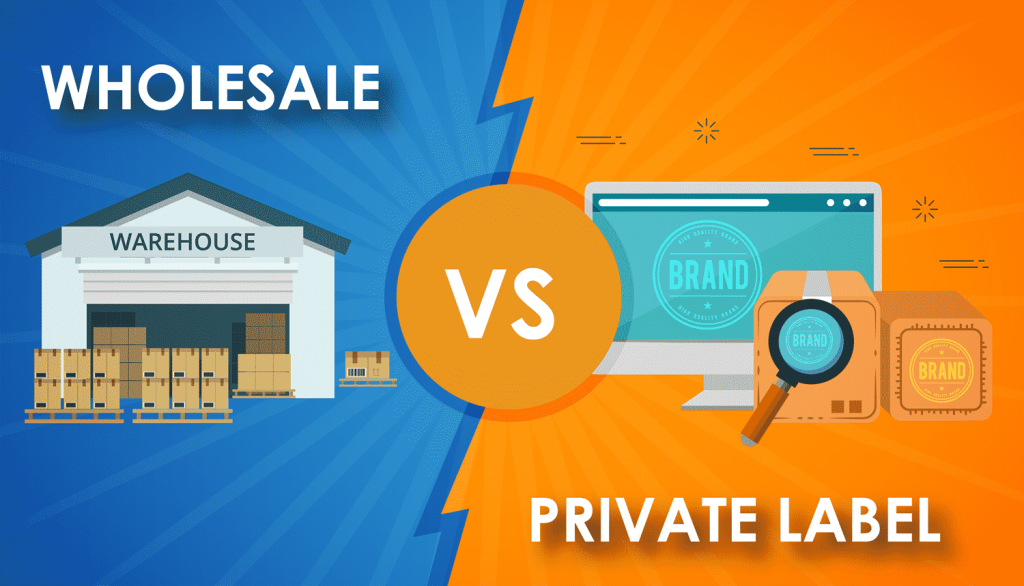In the fast-paced world of e-commerce, Amazon stands out as one of the giants, with millions of sellers competing for a share of its massive customer base. Among the various selling models available on Amazon, the FBA (Fulfillment by Amazon) private label business has gained significant popularity in recent years. This business model offers sellers the opportunity to create their own brand and leverage Amazon’s vast infrastructure to reach a global audience. In this comprehensive guide, we will delve deep into the concept of Amazon FBA private label business, exploring what it is, how it works, its advantages, challenges, and steps to get started.
Understanding Amazon FBA Private Label Business
What is Amazon FBA Private Label Business?
Amazon FBA Private Label Business is a business model where sellers source generic or unbranded products, add their own branding, and sell them on the Amazon platform. FBA, or Fulfillment by Amazon, means that Amazon handles storage, packaging, shipping, and customer service on behalf of the seller. This business model allows individuals and businesses to create their own unique brand and products without the need for manufacturing, warehousing, or logistics.
How Does It Work?
Here’s a simplified overview of how Amazon FBA Private Label Business works:
Product Selection: Sellers research and identify products with market demand and relatively low competition.
Sourcing: Sellers find suppliers, often in countries like China, who can provide the chosen products at a competitive price.
Branding: Sellers create their brand name, logo, and packaging design to differentiate their products.
Listing Creation: Sellers list their products on Amazon, optimizing titles, descriptions, and images to attract potential buyers.
Shipping to Amazon: Sellers ship their products to Amazon’s fulfillment centers, where inventory is stored until sold.
Fulfillment: When a customer places an order, Amazon handles picking, packing, and shipping, as well as customer service inquiries.
Marketing: Sellers promote their products through Amazon PPC ads, social media, and other marketing channels.
Sales and Profit: Sellers earn revenue from sales, while Amazon deducts fees and shipping costs, and sellers receive the remaining profit.
Advantages of Amazon FBA Private Label Business
Brand Control and Recognition
One of the primary benefits of the Amazon FBA private label business is the opportunity to build your brand. You have full control over your product’s branding, packaging, and marketing. This allows you to establish a unique identity in the market and create brand recognition among customers.
Access to Amazon’s Customer Base
Amazon boasts over 300 million active customers worldwide. By using the FBA model, you gain immediate access to this vast customer base, reducing the need for extensive marketing and customer acquisition efforts.
2.3 Prime Eligibility
FBA products are eligible for Amazon Prime, which offers customers fast and free shipping. Prime eligibility can significantly boost your product’s visibility and appeal to customers looking for quick delivery options.
Fulfillment and Customer Service
Amazon takes care of the logistical aspects of your business, including storage, shipping, and customer service. This frees up your time and resources to focus on product development, marketing, and scaling your business.
Scalability
As your private label business grows, Amazon can handle the increased volume of orders and scale your operations seamlessly. You can expand your product line and reach new markets with relative ease.
Challenges of Amazon FBA Private Label Business
Competition
The popularity of the FBA private label business model has led to increased competition on Amazon. Finding unique product opportunities and differentiating your brand can be challenging.
Initial Investment
Starting an FBA private label business requires an initial investment in product sourcing, branding, and inventory. While it can be profitable in the long run, it’s important to manage your finances wisely.
Product Quality Control
Maintaining product quality is crucial to building trust with customers. You must work closely with suppliers to ensure consistent quality and address any issues promptly.
Amazon Fees
Amazon charges various fees, including referral fees, fulfillment fees, and storage fees. It’s essential to factor these costs into your pricing strategy to ensure profitability.
Marketing and Promotion
Effective marketing and promotion are essential to stand out on Amazon. This can require additional investments in advertising and promotional campaigns.
Getting Started with Amazon FBA Private Label Business
Market Research
Begin by conducting thorough market research to identify products with demand and low competition. Utilize tools like Amazon’s Best Sellers, Google Trends, and keyword research tools to gather data.
Supplier Sourcing
Find reliable suppliers who can provide the products you’ve chosen. Popular sourcing destinations include China, where you can work with manufacturers or use platforms like Alibaba.
Branding and Design
Create a compelling brand name, logo, and packaging design that resonate with your target audience. Your branding should set you apart from competitors.
Listing Creation
Optimize your product listings with relevant keywords, high-quality images, and persuasive product descriptions. Use Amazon SEO techniques to improve visibility.
Inventory and Shipping
Ship your inventory to Amazon’s fulfillment centers, ensuring that your products are properly labeled and packaged according to Amazon’s guidelines.
Marketing and Promotion
Implement a marketing strategy that includes Amazon PPC advertising, social media marketing, and email marketing to attract potential customers.
Monitoring and Optimization
Regularly monitor your sales, customer feedback, and Amazon PPC campaigns. Use data-driven insights to make improvements and optimize your business.
The Amazon FBA private label business offers a lucrative opportunity for individuals and businesses to create their own brands and sell products on the world’s largest e-commerce platform. While it comes with its challenges, the advantages, such as brand control, access to Amazon’s vast customer base, and scalability, make it an attractive option for many entrepreneurs.
To succeed in this business model, thorough research, effective marketing, and a commitment to product quality are essential. With dedication and a strategic approach, aspiring sellers can carve out their niche in the competitive world of Amazon FBA private label business and build a successful and profitable e-commerce venture.







